Effective Project Management: How the Right Tools Can Make All the Difference
Project management is a critical component of any successful business or organization. It involves coordinating the efforts of various teams and individuals to ensure that projects are completed on time, within budget, and to the required quality standards. However, with the ever-increasing complexity of projects and the need to constantly adapt to changing circumstances, effective project management is easier said than done.
One way to improve project management is by using the right tools. The right project management tools can make a huge difference in the success of a project by streamlining processes, providing better visibility into progress, and helping to identify and resolve issues more quickly.
One popular project management tool is the use of software. A lot of Project management software offer features such as task tracking, resource management, and budgeting, which can make it easier for project managers to track progress and identify issues. Additionally, these tools often provide real-time data that can be used to adjust the project plan as needed. Some of the popular project management software such as Asana, Trello, Jira, Monday.com and Basecamp among others.
Another effective project management tool is the use of project management methodologies, such as Agile, Waterfall or Hybrid. These methodologies provide a framework for managing the project and can help to ensure that the project is completed on time and within budget. Agile project management, in particular, is designed to be adaptable to changing circumstances and can be particularly useful for projects with a high degree of uncertainty.
One more project management tool is the use of collaboration tools. With team members often working in different locations and time zones, it is important for project managers to have access to collaboration tools that allow for easy communication and information sharing. Tools such as Slack, Zoom, Microsoft Teams, Google Meet among others can be used for team communication and video conferencing, making it easy for team members to stay in touch and collaborate.
Top Five Features of Project Management Tool
-
Task and milestone tracking: The ability to track the progress of individual tasks and milestones is essential for effective project management. A good project management tool should allow project managers to assign tasks, set due dates, and track the progress of each task, this way they can stay on top of deadlines and ensure that tasks are completed on time.
-
Resource management: Resource management is a crucial aspect of project management, as it involves allocating the right people and resources to tasks and projects. A good project management tool should allow project managers to view the availability of team members, assign resources to specific tasks, and track the allocation of resources over time, this helps to ensure that the right resources are available at the right time and to make adjustments as needed.
-
Budgeting and financial tracking: Project management often involves managing budgets and finances. A good project management tool should provide project managers with an overview of project costs and the ability to track expenses, this allows project managers to keep an eye on project budgets and identify areas where costs may be going over budget.
-
Collaboration and communication: Collaboration and communication are key aspects of project management. A good project management tool should provide features that allow team members to collaborate and share information easily, such as shared calendars, task lists, and project timelines. It should also have options for team communication such as chat, email, or video conferencing, this helps to improve communication and to keep everyone on the same page.
-
Reports and analytics: Reports and analytics can provide important insights into project performance and help project managers to identify areas for improvement. A good project management tool should provide a range of customizable reports and analytics, such as burn-down charts, Gantt charts, and resource utilization reports, this allows project managers to track progress, identify trends, and make data-driven decisions.
Overall, a good project management tool should help project managers to plan, organize, and execute projects effectively, as well as to monitor progress and make informed decisions. It should provide an array of features that allow for efficient task and resource management, budget tracking, team collaboration and communication, and reporting and analytics.
In conclusion, effective project management is essential for the success of any business or organization. By using the right tools such as project management software, project management methodologies, and collaboration tools, project managers can improve the overall efficiency and effectiveness of their projects. These tools can help project managers to stay on track and make the best decisions for their projects, ensuring that they are completed on time and within budget.




